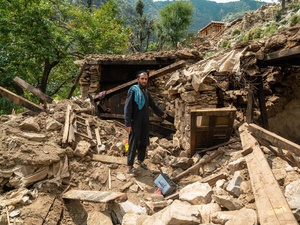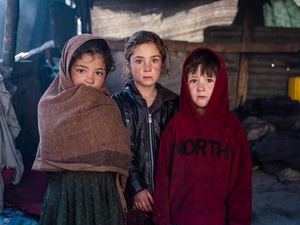Afghanistan: Preparations for organized repatriation
Afghanistan: Preparations for organized repatriation
Preparations for the organized repatriation of Afghans are going forward. The Iranian government is preparing 10 repatriation centres where Afghans will be able to register, and it is also constructing three special exit points along its border with Afghanistan to facilitate crossings. In Pakistan's Baluchistan Province, UNHCR and the government plan next week to survey Afghan refugees living in the newly established camps to obtain information about where people want to go and when they might be prepared to return. For the moment UNHCR is not encouraging Afghans to repatriate, although we plan to distribute basic kits to spontaneous returnees inside Afghanistan who request assistance.
Inside Afghanistan, relief agencies in Herat plan to start registering displaced persons living in the sprawling Maslaqh camp in the coming days, an operation overseen by IOM but with support from UNHCR registration specialists. More generally, the snow falling in Afghanistan heralds a positive sign for the country's farmers, although it's too early to say that the long drought is over. UNHCR staff along Afghanistan's border with the Iranian province of Sisten-Baluchistan say that the Helmand river is now flowing, something that hasn't been seen in years.
UNHCR monitors at the Torkham crossing point with Pakistan say that nearly 15,000 persons entered Afghanistan through the famed Khyber Pass in the first six days of February. The vast majority were men, with ethnic Tajiks outstripping other Afghan tribes. Ten percent of the returnees interviewed said they were university graduates, while 25 percent had finished secondary school, indicating that these spontaneous returnees want to get in on the ground floor of Afghanistan's new economy.
Snow also fell across many areas of Pakistan, forcing a UNHCR relocation convoy from Jalozai to a new camp at Shalman in the north-west border belt to turn back as the mountainous roads and hairpin turns became impassable. This will delay the closure of Jalozai for some days, but the makeshift camp, now down to only 3,000 residents, should be emptied by the end of next week.









